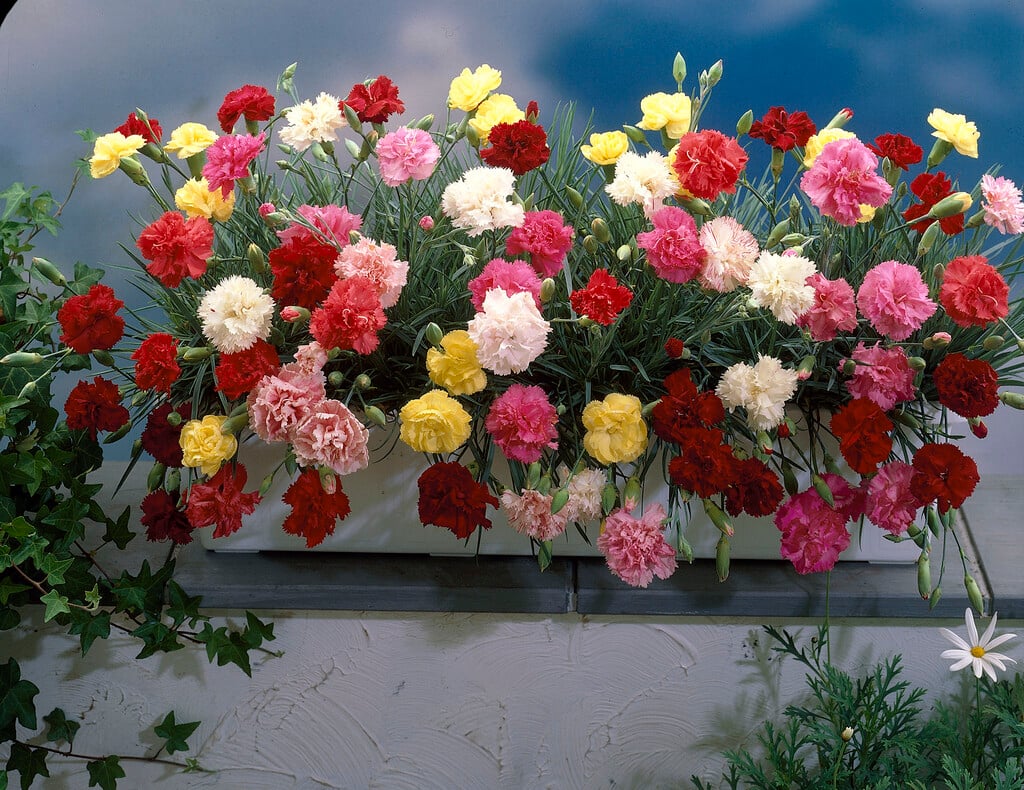Dianthus caryophyllus
border carnation
A perennial that will develop a woody base with age. Many old and modern carnations have been bred from this species. Single flowers are clove-scented and are variable in colour, appearing in various shades of pink and purple, held above grey-green foliage
Other common names
carnadinecarnation
see moreclove carnation
clove gilliflower
clove pink
coronation
cottage pink
dainty
dainty lady
fair maids of Kent
gilliflower
gilly flower
grenadine
lusty gallant
pale pageant
picotee
sad pageant
sops in wine
Size
Ultimate height
0.5–1 metresTime to ultimate height
2–5 yearsUltimate spread
0.1–0.5 metresGrowing conditions
Moisture
Well–drainedpH
Neutral, AlkalineColour & scent
| Stem | Flower | Foliage | Fruit | |
| Spring | Green Grey Silver | |||
|---|---|---|---|---|
| Summer | Pink Purple | Green Grey Silver | ||
| Autumn | Green Grey Silver | |||
| Winter | Green Grey Silver |
Position
- Full sun
Aspect
South–facing or West–facing or East–facing
Exposure
Exposed or Sheltered Hardiness
H4Botanical details
- Family
- Caryophyllaceae
- Native to GB / Ireland
- No
- Foliage
- Evergreen
- Habit
- Bushy
- Potentially harmful
- Humans/Pets: Skin allergen, wear gloves and other protective equipment when handling. For further information and contact numbers regarding pets, see the HTA guide to potentially harmful plants
- Genus
Dianthus can be annuals, evergreen perennials or subshrubs with narrow, often greyish leaves and showy flowers that are frequently fragrant
- Name status
Correct
How to grow
Cultivation
Grow in a well-drained soil in a sunny position
Propagation
Propagate by softwood cuttings of non-flowering shoots in summer
Suggested planting locations and garden types
- City and courtyard gardens
- Cottage and informal garden
- Gravel garden
- Mediterranean climate plants
- Patio and container plants
- Rock garden
- Cut flowers
- Flower borders and beds
- Wall side borders
Pruning
Deadhead regularly to prolong flowering. Lightly trim after flowering or in spring
Pests
Diseases
May be susceptible to powdery mildews, a rust, a virus and fusarium wilt
Get involved
The Royal Horticultural Society is the UK’s leading gardening charity. We aim to enrich everyone’s life through plants, and make the UK a greener and more beautiful place.
